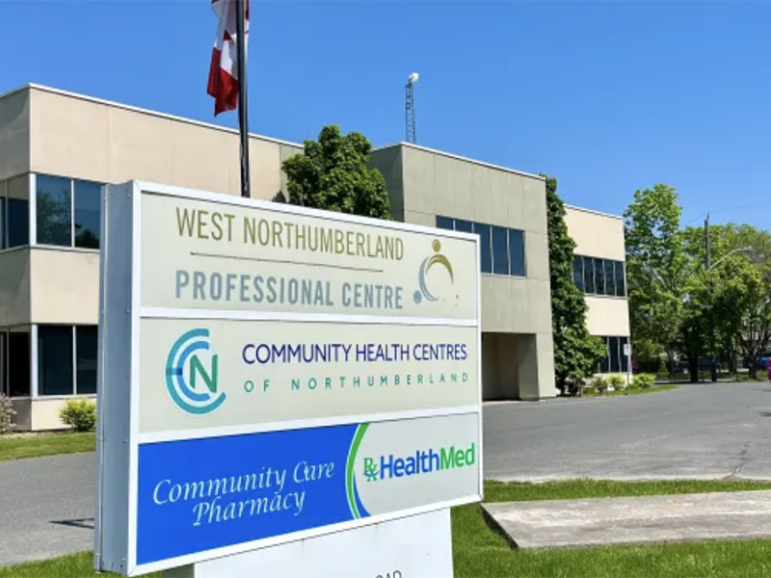
The Port Hope walk-in clinic recently opened. It continues to search for doctors to staff its operation.
A request to spend $45,000 to create a county-wide doctor recruitment strategy in partnership with the Ontario Health Team Northumberland was sent back for further consideration at the county council meeting on Aug. 14.
Council was asked to enter into a shared project to develop a single physician recruitment plan following a presentation in July from the Ontario Health Team Northumberland.
However, none of the politicians at the county council meeting supported the request. Instead, it was sent back to the Community Health Committee for reconsideration.
At its July 30 meeting, Dr. Fraser Cameron and Andrea Groff recommended the proposal to the county’s health committee. They represent the Ontario Health Team Northumberland. She is the executive lead, and he is the leading physician.
In the presentation to the health committee, politicians were told there were 8,000 people without doctors. It predicted the number could rise to 20,000 by 2026.
Groff said the health team worked with Toronto Metropolitan University to develop recommendations regarding doctor recruitment for the area. This included consultations with 19 various stakeholders, patients, families, and caregivers, she told the committee.
One big takeaway was the existence of three separate recruiting programs in the county. One is in West Northumberland, another in Trent Hills, and a third in Brighton.
“There is a lack of a unified county-wide recruitment plan,” she said.
She called on the county to share the costs 50/50 of creating a single, Northumberland-wide plan. The committee unanimously supported the idea and sent it to the county council to make a final decision.
When it got to county council, little was said. When the time came to debate and vote, none of the politicians would approve the request.
Deputy Warden Olena Hankivsky said she felt what came before county council was different than what she heard as a health committee member.
“And it sounds, from what you’re presenting today, that (it) shifted slightly to actually actionable items that would be attached to that money, which is very different than what we heard at the presentation,” she said.
Glenn Dees, director of Health and Human Services, said the money would be used to create a strategic plan. He wanted the money to hire someone.
“What we really need is an individual to see (strategic plan) get off the ground and see that (it) comes to fruition and create a framework where we identify key actions going forward,” he said.
Consolidating the recruitment committees would be part of the plan.
Hankivsky called for more discussion regarding how the $45,000 would be spent.
“I do think it behooves us to pick a number of action items and put some money towards that,” she said. “As well, a longer term plan or strategy is developed and builds on that which has already been done.”
Hankivsky said she supports a unified approach to recruitment but not another plan on paper in the short term, leaving any strategic plan for the longer term.
“I’m very supportive of actually identifying actions and moving forward on that because we’re losing precious time, and we’re losing doctors, literally by the month,” she said.
Trent Hills Mayor Bob Crate complained that the provincial government should be responsible for healthcare costs, not municipalities. Trent Hills has more than $107,000 in a reserve account for physician recruitment, he said.
According to various municipal budgets, Brighton council set aside $95,000 for physician agreements and also has a reserve fund. Cobourg put about $27,000 in its contribution to the West Northumberland recruitment efforts in its 2024 budgt. Port Hope also contributed $23,000. Hamilton Township budgeted $25,000 in 2024. Alnwick-Haldimand contributed $6,000 in 2023, and Cramahe Township gave $9,600 as a grant to health services in 2024.
Cramahe Township Mayor Mandy Martin was especially critical of a study without concrete steps to address the current situation more quickly. She predicted another study would kick the can down the road by nine months.
“We (need to) start addressing what the actual needs are and what we can actually do to support improving our healthcare,” she said.
In the end, county council referred the idea back to the health committee for further review and discussion. It was adopted unanimously.